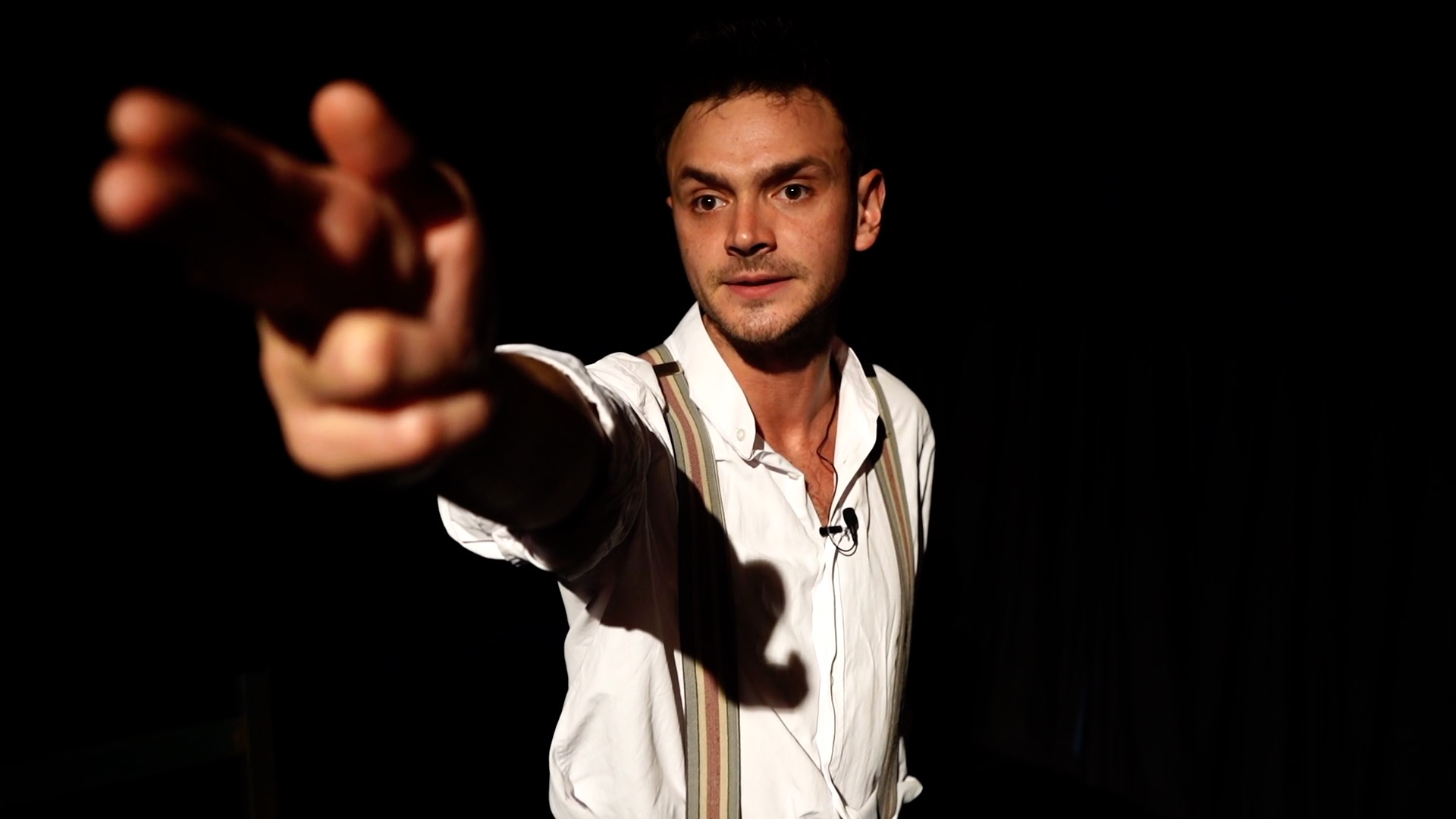You may or may not know Gavrilo Princip’s name, but you’ll surely recognise what he did: assassinated Archduke Franz Ferdinand, and thereby lit the touch-paper on the First World War. This isn’t the first and won’t be the last piece of theatre to tackle that story; but while other productions tend to focus on the details of the assassination itself, I Am Gavrilo Princip seeks to explore those world-shaking events through the life story of the man who pulled the trigger.
We meet Princip after his death, in Purgatory. At least, that’s where he tells us he is – but it seems to be more of a personal Hell, where he’s forced again and again to watch the century-long series of conflicts started by his actions in 1914. The Princip of the play is aware of his own culpability, but also his own importance; as he defiantly explains, it was his actions which ultimately brought down Habsburg rule, ending the royal family’s 500-year dominion over swathes of Europe. Yet now, forever cursed to witness the 1990’s destruction of Sarajevo, the optimism he felt for the post-Habsburg future is cruelly dispelled.
Actor Oliver Yellop plays Princip as a young man who’s struggling to find his way: idealistic, naive and vainglorious at times, yet also bitterly cynical and ashamed. It’s a nuanced and credible portrayal, successfully navigating those seeming contradictions, casting Princip as a rounded and relatively sympathetic character. There are moments of poignancy – both when he describes his childhood, and as he surveys the legacy of the war he began – and for us in the audience, there is a glimmer of understanding, as he tells of his formative years in a repressed and divided society.
We get a history lesson too, as Yellop’s self-penned script explains the complex geopolitical forces which both drove and ensnared Princip. If you believe, as I did, that he was a member of a nationalist group called the Black Hand, then you’ll learn that the truth is much messier than that. There are subtle warnings here, about how easy it is to make a whole nation a scapegoat and how sceptical we should be of narratives promoted by a powerful state; but it’s also simply interesting to untangle the story, and to understand that a united Yugoslavia was once not a failed relic of Communism, but a radical ideal.
Yellop shares the stage with two musicians, one on the trombone and the other playing a guitar, who offer a quirkily downbeat soundtrack to the story. It’s a fitting accompaniment; the music often fizzles out mournfully to nothing, reflecting the ultimate futility of Princip’s grand plans. The fatal shot itself is a cleverly low-key moment too, unleashing cataclysm not with a bang but a whisper.
I Am Gavrilo Princip is a reflective and informative play – but it’s also an impactful one. The Princip of Yellop’s script isn’t the great man he thinks he is, but he isn’t a master villain either. He’s an ordinary peasant around whom – for one fateful moment – the world happened to turn. And that could, God forbid, be any of us.


Comments